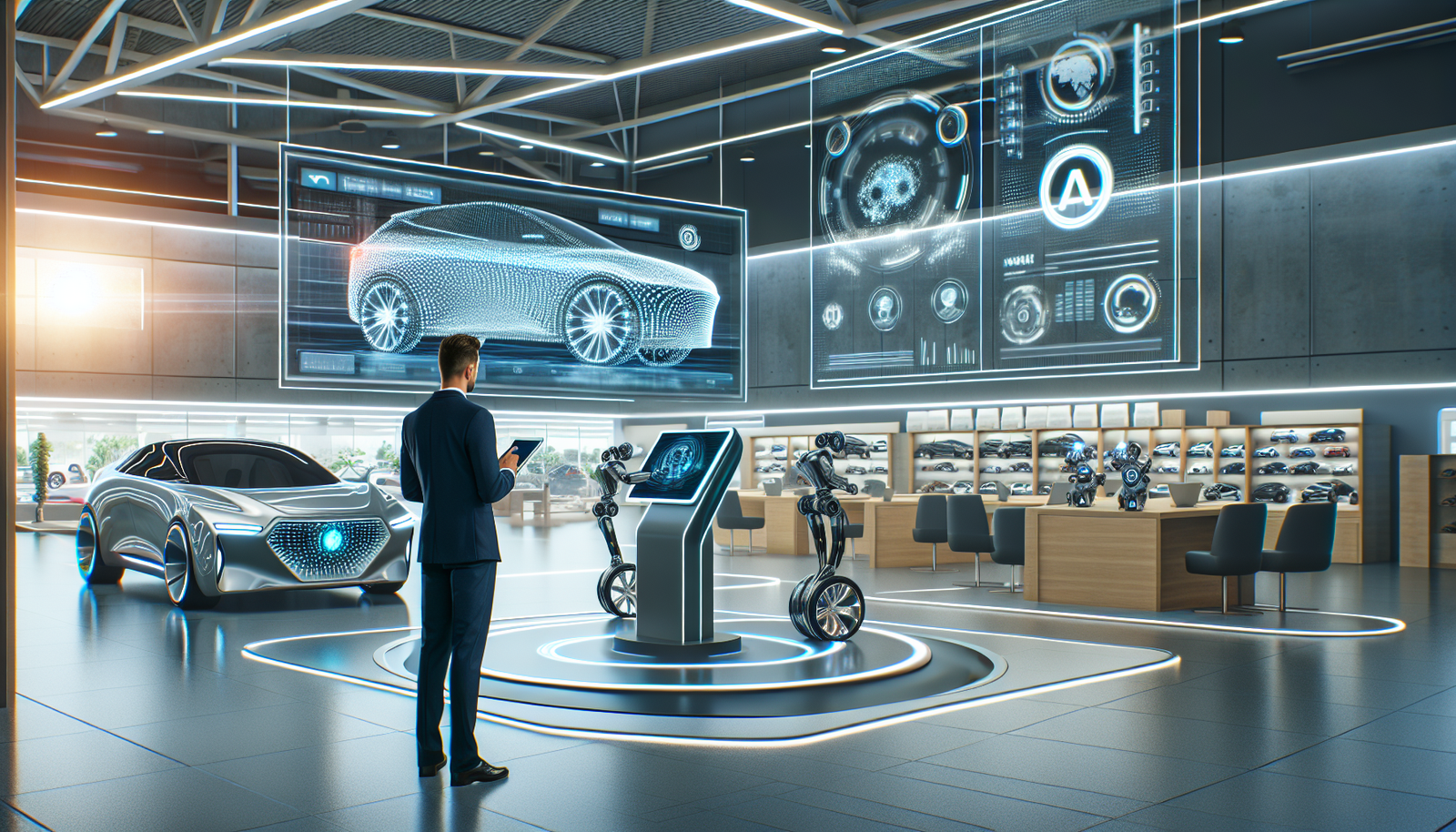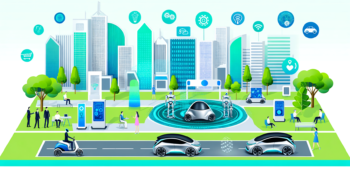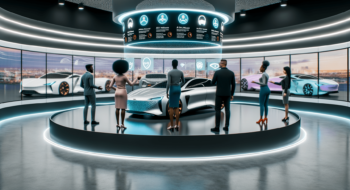The automotive industry is on the cusp of a technological revolution, driven by the integration of artificial intelligence. As innovation reshapes consumer expectations and dealership operations, AI is set to transform the way vehicles are bought, serviced, and sold. From streamlining transactions to enhancing customer experiences, automotive professionals are leveraging AI tools to increase efficiency and drive growth. In this discussion, we will explore how the future of AI is redefining the automotive landscape and what it means for dealers and consumers alike.
The Rise of Artificial Intelligence in Automotive Transactions
Think about the last time you bought or serviced a vehicle. The experience may have involved hours spent negotiating price, waiting in long lines, and enduring high-pressure sales tactics. Now, imagine if artificial intelligence could swoop in like a superhero to save the day. Well, it’s happening. AI technology is revolutionizing automotive buying processes, transforming stress-filled transactions into seamless experiences.
Today’s consumers are tech-savvy and expect instant gratification. With AI, dealerships can leverage data to understand customer preferences, streamline the purchasing process, and create a personalized shopping experience. AI algorithms can analyze vast amounts of data, such as purchase histories, preferences, and social media activities, to generate tailored recommendations that match the buyer’s needs.
Enhancing Customer Experience
The experience of purchasing a vehicle is no longer a one-size-fits-all affair. Thanks to AI, dealerships can now provide personalized services, ultimately enhancing customer satisfaction. Technologies like chatbots and virtual assistants are now commonplace, answering queries at lightning speed and guiding customers through the buying journey.
- 24/7 Availability: AI-powered chatbots can handle inquiries around the clock, ensuring customers receive assistance whenever needed.
- Personalized Recommendations: AI can curate vehicle suggestions based on individual customer profiles, making the selection process easier and more enjoyable.
- Instantaneous Financing Options: AI analyzes credit histories to offer quick financing solutions tailored to the shopper’s financial capabilities and preferences.
By leveraging AI tools, dealerships can offer superior experiences, transforming the daunting task of vehicle shopping into something enjoyable. According to a recent survey, around 63% of consumers feel more satisfied with a dealership when they receive personalized assistance, which is largely powered by AI solutions. This impressive statistic highlights the importance of integrating AI to better connect with today’s discerning consumers.
Streamlining Service Efficiency
Aside from purchasing, service efficiency is another area ripe for AI intervention. Traditional service models often lead to scheduling conflicts, miscommunication, and delays—none of which are great for the customer experience. Here’s where AI steps in like a well-oiled machine.
- Smart Scheduling: AI-driven scheduling systems can predict peak hours and automatically allocate technicians to manage workflow, reducing wait times and maximizing efficiency.
- Predictive Maintenance: AI analyzes data to anticipate vehicle issues before they arise, allowing for preemptive repairs that can save customers both time and money.
- Enhanced Communication: AI platforms can automatically update customers regarding their vehicle status, minimizing anxiety during service visits.
By providing an AI-driven service department, dealerships can not only enhance operational efficiency but also cultivate long-lasting customer loyalty. A well-run service department can significantly increase customer retention rates, ensuring that customers keep coming back for their automotive needs.
The Dealership of the Future
The dealership model is evolving. As technology progresses, the traditional brick-and-mortar dealership is beginning to resemble high-tech hubs of information and efficiency rather than just physical storefronts. AI is carving a new path forward, enabling dealerships to optimize their operations.
Inventory Management
With ever-changing consumer desires, dealerships face the challenge of maintaining the right amount of inventory. AI can accurately forecast which models will be in demand, ultimately optimizing stock levels and reducing excessive holding costs. By analyzing trends and historical data, AI assists in intelligent inventory management that ensures the right vehicles are available when customers want them.
Enhanced Marketing Strategies
Marketing isn’t just about flashy ads and billboards anymore; it’s about reaching consumers on a personal level. AI can identify target markets and analyze customer engagement in real-time, allowing dealerships to adjust their marketing strategies instantaneously. For example, targeted email campaigns can be tailored to individual preferences, ensuring that relevant offers hit inboxes at just the right moment.
By harnessing AI’s data-driven capabilities, automotive professionals can drive more effective marketing campaigns with measurable results, meaning more sales and less wasted expenditure. Today’s dealerships need to adapt if they want to compete, and leveraging AI in marketing is a surefire way to create a competitive edge.
Ethical Considerations in AI Integration
As with any technology, the integration of AI into automotive sales and services raises ethical considerations. Privacy remains a primary concern, especially with the vast amounts of data involved. Dealerships must ensure transparency around data usage and maintain strict security protocols. Ensuring that customers know how their data is being used will build trust, a crucial component of keeping customer relationships intact.
Moreover, while AI can significantly enhance efficiency, it shouldn’t replace the human touch. The automotive experience is often emotional—a venture into something new, an investment in a future of mobility, or a connection to memories made on the road. Customers will always appreciate genuine human interactions, so balancing AI automation with excellent personal service is vital.
Upcoming Trends in Automotive AI
What does the future hold for AI in the automotive industry? Here are some exciting trends to keep an eye on:
- Autonomous Vehicle Technology: As advancements progress, AI will play a crucial role in automating driving features, creating a shift in vehicle ownership models and services.
- Data Sharing and Collaboration: AI can facilitate better data sharing across dealerships and manufacturers, ensuring a more comprehensive understanding of consumer behaviors.
- Integration with Smart Cities: The concept of smart cities offers significant opportunities for the AI automotive ecosystem, enhancing integrations between vehicles and urban infrastructure.
These trends point towards an incredibly exciting future for the automotive world, driven by advancements in AI technologies. As we stand at the intersection of technology and creativity, the potential to create meaningful connections between automobiles and consumers becomes tantalizingly real.
Conclusion: Embracing the AI Revolution
As the automotive industry leans into the future powered by artificial intelligence, everyone benefits—from consumers to dealerships. By embracing AI, businesses are not only improving efficiency but also transforming their entire customer experience paradigm, propelling the market toward new heights of innovation.
So, whether you’re a dealer seeking to enhance operations or a consumer wanting a smoother purchasing experience, there’s a revolution underway in the automotive landscape, and it’s driven by the power of AI. Don’t get left behind—stay ahead by staying informed. Join the change and embrace the exciting possibilities AI offers within the automotive industry!
For more in-depth insights into the evolving role of AI in the automotive sector, visit Neyrotex.com.







